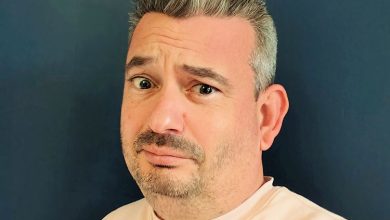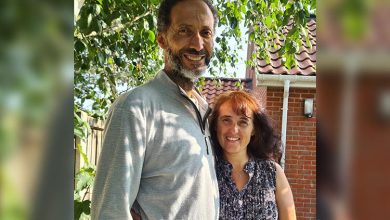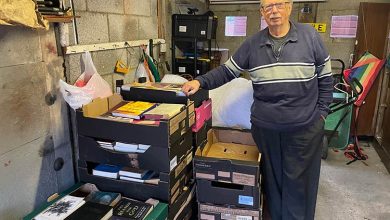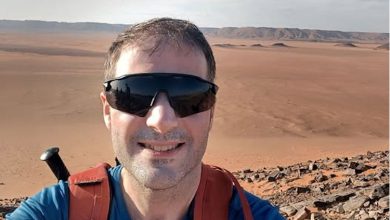Norwich man responds when disaster strikes
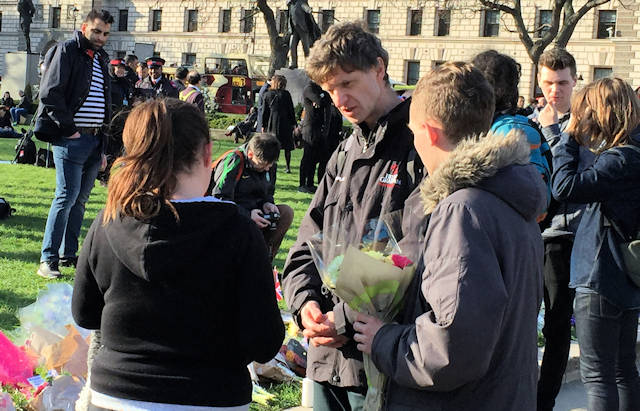
When disasters such as the Grenfell Tower fire or terrorist attacks have struck the UK in recent months, a Norwich Christian has been among the first to respond, as part of a team of Christian chaplains, offering comfort and help to those affected. Keith Morris reports.
Eldred Willey is part of the Billy Graham Rapid Response Team which, this year alone, has supported the grieving community around Grenfell Tower, and offered emotional and spiritual care in the wake of the deadly attacks at Westminster Bridge and London Bridge. In late May, they also ministered alongside local churches after the deadly bombing in Manchester. Eldred has taken part in three of the last four deployments.
“After a disaster, many people are traumatised and bleeding emotionally. Our role is to provide emotional first aid. We believe that by intervening early on, we can help to prevent the development of psychological disorders. As chaplains, we want to encourage others to intervene positively and to pass on the skills needed to do so. It is so important to reach out to people who are suffering, rather than leave them isolated,” he said.
“At the darkest times, people ask the deepest questions. It’s important to have people who will take time to listen. As chaplains we can’t answer the question why. We can’t say why disasters happen. But we can often answer the question ‘who’? Who can help me in this time of tragedy? We can point people to human sources of help, and if people want it, we can also help them find comfort in Christ.
“Our Chaplains have found that three-quarters of people they meet in tragic situations are already going through some kind of personal trauma,” said Eldred.
In early December, Eldred and others from the Rapid Response team ran a free seminar at the Eastgate Trust in Thrigby, East Norfolk, to teach people from local churches some of the skills they have learned as they respond to tragedy.
“The course aimed to equip people to effectively minister to individuals who are facing bereavement, sickness, grief, relationship loss or other personal traumas,” said Eldred.
It’s good to talk
A couple of days after the terrorist bombing outside the Ariana Grande concert in Manchester in May, a minute’s silence was observed by huge crowds gathered in the city’s St Anne’s Square.
Eldred was there and started talking to a young man he called Adam, aged 22, the same age as the terrorist bomber. He takes up the story…
Adam had been sitting for hours in the square, taking it all in. He was heavily tattooed, with pierced cheeks, nose and tongue, and wearing over-sized earphones. One cheek was twitching as he struggled with lonely thoughts. But when I sat next to him, he began to talk.
“I can understand how they drew him in,” said Adam. “We see it in the gangs here in Manchester. They always pick on the weakest, most bullied boys. Then they give them somewhere to belong, and they can twist them any way they like.”
“I used to have faith as a child,” said Adam. “But I lost it. Too many bad things happened to me. I remember 9/11: I was only seven at the time. I started asking: how could a God who is in control allow this? How could he allow this to happen to Manchester? Just look at those kids – they were so innocent.”
Adam had grown up in a Christian school, surrounded by Bible stories and crucifixes.
“What about Jesus?” I asked him. “What if God came and suffered with us, with those kids in the bomb attack? Wouldn’t He be a God worth believing in?”
“Could I challenge you to say a prayer?” I asked Adam. “Would you pray that if God and Jesus are real, they would reveal themselves to you?”
Adam was silent for a moment, and then in the middle of the square, with strangers sitting all around him, he prayed aloud:
“God, if you are real, reveal yourself to me. Jesus, if you are real, reveal yourself to me. Amen.”
Pictured top is Eldred Willey, centre, talking with people at the scene of the Westminster terrorist attack and, above, flowers in St Anne’s Square, Manchester.
Read the full article here




